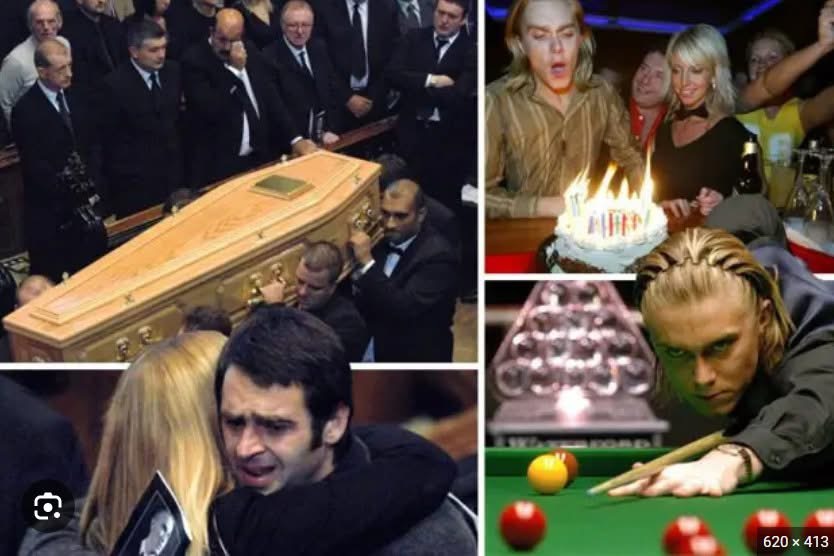It has been 11 years since the snooker world lost one of its brightest talents, Paul Hunter, and the pain of his untimely passing still reverberates through the hearts of his family, friends, and fellow professionals. Hunter, who died on October 9, 2006, at the age of just 27 after a valiant battle with cancer, left behind a legacy that transcends statistics and trophies — he left behind a spirit of joy, charisma, and sportsmanship that continues to inspire.

Born in Leeds in 1978, Hunter was a prodigious talent from an early age. By the time he turned professional in 1995, many had tipped him as a future world champion. His blend of natural skill, fearless break-building, and an infectious personality quickly made him a fan favorite. Known affectionately as “The Beckham of the Baize,” he brought a fresh glamour to the sport, often compared to football stars for his style and media appeal.
Hunter’s greatest achievements came at the Masters, where he claimed three titles in four years (2001, 2002, and 2004). Each victory was marked by thrilling comebacks and a determination that became synonymous with his name. His 10–9 win over Fergal O’Brien in 2001, from 6–2 down, remains one of the most memorable matches in Masters history. Behind the scenes, he attributed his success to what he cheekily called “Plan B” — a quick break with his then-girlfriend (and later wife), Lindsey, to relax and refocus.
But beyond the table, Paul Hunter was universally loved for his warmth and humility. Fellow players speak of a man who was always approachable, generous with his time, and full of laughter. His illness — neuroendocrine tumors of the stomach — was diagnosed in March 2005. Despite undergoing treatment, he courageously continued to play on the professional circuit, refusing to let the disease define him. His final appearance came at the 2006 World Championship in Sheffield, where he was visibly weakened but remained determined to compete.
His death stunned the snooker community. Many professionals, including Ronnie O’Sullivan, Steve Davis, and Stephen Hendry, paid emotional tributes. O’Sullivan called him “an inspiration,” while Davis spoke of the immense loss of “a player who was destined for greatness.”
Hunter’s wife, Lindsey, and their young daughter, Evie Rose, have worked to keep his memory alive through the Paul Hunter Foundation, which promotes snooker among disadvantaged youth. “Paul wanted kids to have fun, to enjoy the game like he did,” Lindsey once said. “That’s what this foundation is about — continuing what he started.”

The Masters trophy was renamed the Paul Hunter Trophy in 2016, a fitting tribute to the man who lit up the tournament with such style and bravery. Each year, when a player lifts the trophy, it’s a reminder of the dazzling nights Paul gave fans and the dignity with which he carried himself.
Even after more than a decade, the emotional weight of his absence is deeply felt. For those closest to him, the years have done little to dull the pain. But amid the sorrow, there’s a quiet pride in knowing that Paul Hunter’s spirit lives on — not just in records or replays, but in the very heart of the sport he loved.
His story remains a bittersweet reminder of how greatness can be measured not just in titles, but in the way one touches the lives of others.
